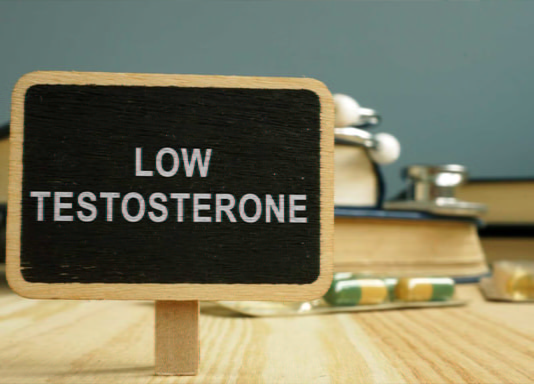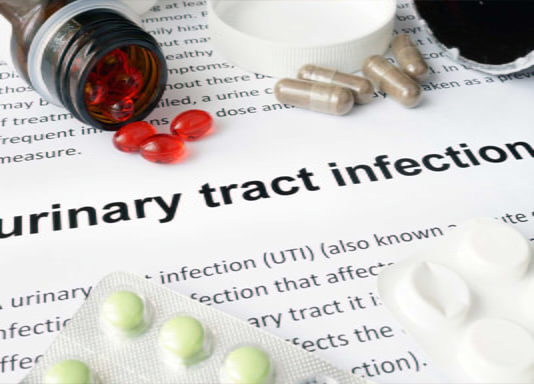Infertility in Men
Infertility is no longer a woman’s concern alone, as men too are increasingly vulnerable to these fears.
The reproductive system operates in coordination between the hypothalamus and the pituitary gland in the brain, and the testes. The hypothalamus secretes a releasing factor or hormone known as the gonadotropin releasing hormone (GnRH) that acts on the pituitary gland.
In response to the Gnrh, the pituitary gland secretes secreting factors or hormones known as Leutinizing hormone (LH), and Follicle Stimulating Hormone (FSH). These hormones act on the testes which are the target organ of reproduction, and signal the testicular cells to produce the target hormone known as the testosterone. The testosterone in turn stimulates the production of sperms of the quality and quantity required for reproduction.
Classification of male infertility:
Infertility disorders may be classified based on the center or organ of dysfunction.
- Primary infertility disorder when the root cause lies in the hypothalamus.
- Secondary infertility disorder when the pituitary is ineffective in the production of required amount of hormones.
- Tertiary infertility disorder when the target organ (testis) is responsible for inadequate sperm production.
Medical conditions causing male infertility
- Hypothalamic / pituitary disorders.
- Gonadal abnormalities.
- Defects in androgen action (pseudohermaphroditism).
- Other causes:
- Obstruction, blockage or congenital absence of Vas deferens
- Varicoceole: These are abnormal dilated veins in the scrotum that result in stagnation of blood in the vessels surrounding the testis and increase the scrotal temperature which hinders sperm production.
- Retrograde ejaculation: In this condition, semen is ejaculated into the bladder, instead of coming out of the penis.
- Infections and sexually transmitted diseases (syphilis, chlamydia).
- Hypothyroidism, a condition of the thyroid gland, situated in the neck.
- Physical trauma to the testis or head injury causing damage to the higher centers involved in sperm production.
- Testicular tumors/ brain tumors involving the pituitary gland.
Non-medical, acquired or habitual conditions leading to infertility
- Excessive physical activity, exercise.
- Stress, in all its forms which can be physical, mental or psychological. This may be precipitated by social factors, anxiety, depression, low-self esteem etc.
- Drugs – more commonly steroids – are known to cause infertility. Others with rare possibilities include certain antihypertensive agents (medications taken for increased blood pressure), antidepressants, antacids (a few preparations) etc.
- Alcohol inadvertently causes infertility if consumed in more than required large quantities. This may be more commonly seen in alcohol addicts.
- Smoking is said to have an adverse effect on fertility. A study conducted in male smokers revealed that smoking significantly decreases the fertility potential in heavy tobacco smokers. Researchers have also found that smokers may harbor faulty sperm DNA that may be genetically inherited or passed on to their babies.
- Substance abuse, such as cocaine, marijuana etc may play a role in infertility and impotence in males.
- Environmental and occupational hazardous materials such as lead, pesticides, insecticides, industrial waste, radioactive substances, and certain heavy metals etc, may also lead to altered sperm count and sperm viability.
- Concurrent medical conditions such as hypertension (increased blood pressure), diabetes mellitus (increased blood sugar), hypercholesterolemia (increased blood cholesterol) and even obesity may have a role in infertility. According to a study, testosterone levels are inversely proportional to body mass index, i.e., as men’s weight increases, their testosterone levels decrease.
- Increased temperature in and around the scrotum which harbors the testis may be harmful for sperm production and survival. Tight fitting clothing, hot water soaking and even saunas according to a study, increase the temperature of the testis and may lead to reduction in sperm count.
- In a study conducted by the department of Urology at the State University of New York at Stony Brook, researchers have found that, “Working on laptop computers in a laptop position causes significant scrotal temperature elevation as a result of heat exposure and posture related effects.”
- Increasing age seems to have an effect on male fertility. Studies have revealed that pregnancy rates drop and miscarriages increase as the father’s age passes beyond 40 years.
- Testicular cancers may also, to some extent, hamper sperm count and morphology (structure of sperms), depending on the type of cancer. Cancer treatment like administration of radiotherapy or chemotherapy may also cause infertility.
Treatment Objectives:
After recognition of the etiology and the contributory factors causing male infertility the following treatment options can be offered as per the indication, to achieve improvement in fertility or rather to say to treat male infertility.
- Medications
- Surgical treatment
- Counseling












